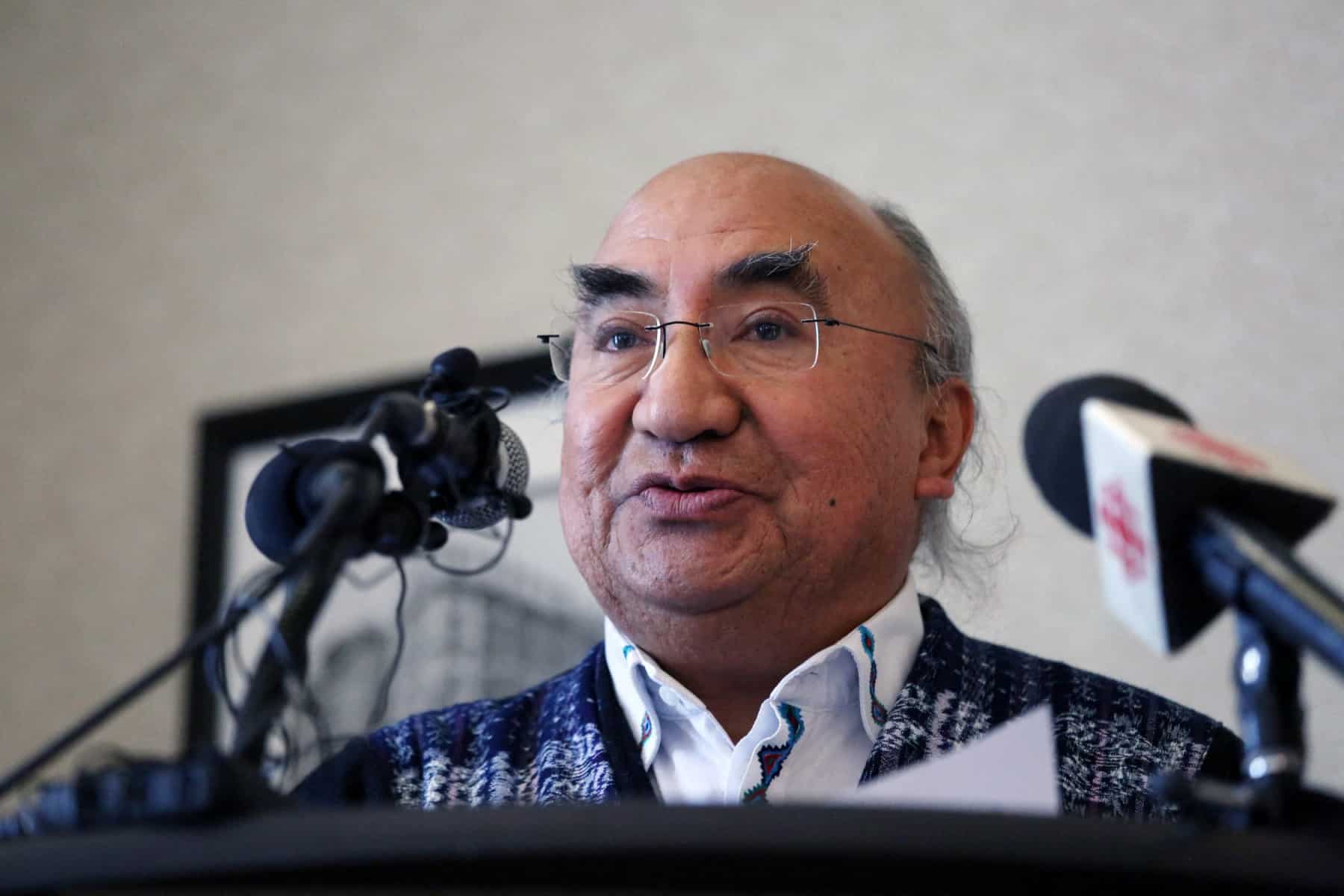CHR sounds alarm on alleged surveillance of UN rapporteur in Kalinga

UN Human Rights Council Special Rapporteur on the Rights of Indigenous Peoples, Jose Francisco Cali Tzay, holds a press conference in Ottawa, Canada, on March 10, 2023. FILE PHOTO/Agence France-Presse
MANILA, Philippines — The Commission on Human Rights (CHR) on Tuesday raised the alarm over reports of alleged surveillance on United Nations (UN) Special Rapporteur (SR) Francisco Cali Tzay and his team during their visit to indigenous communities in Kalinga.
According to the CHR, a pick-up truck tailed UN SR Tzay and his team while visiting Barangay Mabaca and Tabuk near the Chico Dam in Kalinga province.
“Although the team reported that they never felt any threat or harassment in the communities they have visited, this incident still raises serious concern about the security and freedom of movement for both indigenous peoples and international human rights mechanisms and experts,” the commission said in a statement.
READ: Filipino indigenous peoples to push biodiversity plan at UN summit
The CHR’s regional office in the Cordillera Administrative Region has launched a probe into the incident to verify the facts and ensure that any possible violations of freedom of movement and the right to peaceful assembly are promptly addressed.“The commission calls upon all relevant authorities to cooperate fully with the investigation and to take the necessary steps to protect the rights of indigenous peoples and ensure the safety of human rights defenders and international experts,” the CHR expressed.
UN SR Tzay visited the country in July this year to join dialogues on the pressing socio-political and economic challenges confronting indigenous cultural communities and indigenous peoples.
READ: Before PH visit, UN rapporteur urged to probe ‘systemic attacks’ vs journosCritical discussions focused on indigenous peoples’ assertion of their right to self-determination and efforts to preserve their unique cultural identity and autonomy.
The UN reaffirmed that indigenous peoples have the right to “maintain and strengthen their distinct political, legal, economic, social, and cultural institutions while retaining their right to participate fully in the political, economic, social, and cultural life of the state.”